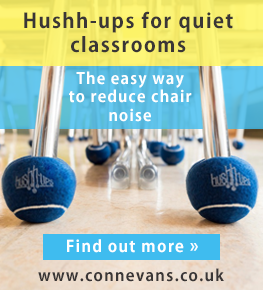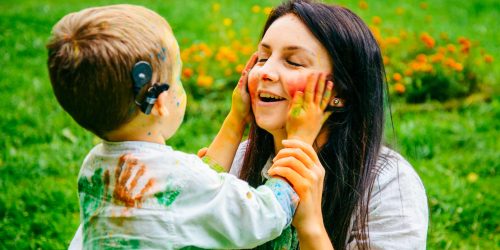Personal experience – deaf pupils in mainstream schools
A feature of this website is the inclusion of personal experiences of the topic under consideration. This makes it possible to include different perspectives, including accounts from professionals and consumers, and different views on decisions that have been made.
We welcome these contributions at any time, and guidance for contributors is given in the ‘overview of the project‘ section.
We are also happy to include here links to signed contributions.
Index
My schooling experience by Anna Herriman; born profoundly deaf; oral until I was 13 and now bi-lingual in BSL and English (added 20 Jan 2015)
Working as a deaf Teacher of the Deaf in a mainstream infant school in the late 1980s by Janice Silo, deaf Teacher of the Deaf, qualifying in the early 1980s after a determined struggle.(added 20 Jan 2015)
Timing, People and Place by Miranda Pickersgill, retired Teacher of the Deaf, Head of Leeds Deaf and Hearing Impaired Service 1987-2000. (added 20 Jan 2015)
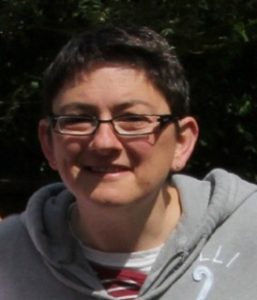
I was born profoundly deaf; I was oral until I was 13 and now I am bi-lingual in BSL and English.
I am profoundly deaf from birth and I am Bi-lingual in BSL and English. I went to mainstreamed schools but with Deaf units. My LEA’s policies towards the education of Deaf children back in the late 1980s and early 1990s was predominately oral until BSL (SSE) was introduced in around 1989.
When reaching 11, my parents had always wanted me to go to the private independent school in the city where we lived. We had a battle with the LEA who said that I couldn’t go there because I am too Deaf. The LEA even wanted to put me in a remedial class!! My parents fought the LEA and we got my IQ tested which is well above average (about 170) and I gained places at the local independent school and Mary Hare Grammar School for the Deaf. My parents dropped the idea of Mary Hare as they wanted me home every day. They later told me, that if we had lived nearer, I would have definitely have gone there as a day pupil. So we continued with our battle with the LEA for communication support and Teacher of the Deaf for the independent school. The LEA then said it was fine for me to go to the local independent grammar school in the city, but they would not provide any communication support as recommended in my education statement of needs.
In the end, I ended up a smaller LEA secondary school but I didn’t stay there very long as they refused to look at my intellectual levels and therefore I wasn’t stretched academically and so I was bored. Then, a new deaf unit was set up in a comprehensive school in a neighbouring town where the school was prepared to take me in. I then changed schools very quickly.
I remember arriving at the new school. I was taken aback by the other pupils using sign language. I didn’t understand sign language at that time (I was 13) so the Teacher of the Deaf had to translate what they were saying. However, within a few weeks I had started to sign. I was so desperate for communication. I was so thirsty for sign language that after a year I was using Signed Supported English quite fluently. I had better communication support thanks to sign language in the classroom and together with the school’s positive attitude towards Deaf pupils, I was placed in the right groups that matched my intellect levels and I was academically stretched and I thrived, and gained 7 GCSEs at Grade C and above. I stayed at the school for the 6th form and achieved my A-levels. From there I went to University.
As I mixed more and more in the Deaf Community during my teens, the Signed Supported English developed into a naturally fluent British Sign Language (BSL) and so my access to education and to life generally improved. I broke out of my shell and was able to develop as the person I am. Today I am a fully qualified professional working full time with 30 hours of BSL interpreter support from the Access to Work scheme. I have a 2:1 honours degree, an MSc and now looking to study towards a PhD in the next few years. I am extremely active socially in the Deaf world attending many Deaf events, and even being the leader of a few Deaf groups. Thanks to BSL, I have found my identity as a Deaf individual who uses BSL and have excellent social and interpersonal skills meaning that I have been able to contribute back to the hearing world. Due to my positive identity as a Deaf BSL user, hearing people around me have been positively influenced to be more Deaf aware, and learn BSL. I also teach BSL and Deaf awareness that has had long lasting positive effect of deafness on people I know. Some of my hearing friends from University learned BSL and have even passed the stage 2 exam. Even one of my university’s lecturers achieved level 2 BSL because of me. I even deliver presentations to delegates at Deaf related conferences. I know everyone’s experiences and needs are different, but I am so glad I got BSL. I can even sign some American Sign Language (ASL) and I have Deaf friends in the USA whom I use ASL to communicate with. I have a very wide circle of Deaf friends internationally. My parents have even said to me, having seen the positive impact of BSL on my life, if I was born today, they would have used bi-lingual communication of BSL and English right from the start and would have made sure the whole family signed. As I was born into an era where sign language was discouraged, this wasn’t the case as it is for many of my friends of a similar age. However, my parents now use gesture to communicate with me, they accept BSL, they make sure I have interpreters at events and my family have even asked me to teach my 1 year old nephew to sign.
Anna Herriman, Deaf from birth, bilingual in BSL and English
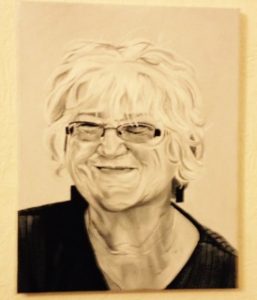
Janice Silo, deaf Teacher of the Deaf, qualifying in the early 1980s after a determined struggle. I became completely deaf at the age of 5 through meningitis, my parents were hearing. I attended a day school for the deaf with an oral policy and left school with no qualifications.
In the early 1970s, at the age of 25, I decided I wanted to be a Teacher of the Deaf and set out to get the necessary qualifications. The goal posts moved continually. You want to be a teacher? Get five O levels. You’ve got 5 O levels? You need 2 A levels. Oh, you’ve got your A levels, well, you need a degree. Wow, you have a degree? Get some experience in education! Oh, you have worked in a deaf school? Well, you need to qualify as a teacher of hearing children……..oh well, done, you have managed to qualify as a teacher of hearing children….you need at least 2 years experience of teaching before you can apply to train as a Teacher of the Deaf. Oh, you have certainly met all the criteria; we have no grounds for turning you down to train as a Teacher of the Deaf! This last comment was made by a Scottish trainer and educator who had worked in the States. She said deaf teachers were no better or worse the hearing teachers but they did bring unique factors into education – empathy and communication skills. Prior to this, well known teaching establishments had turned me down for being deaf!!! So I was surprise to be offered a place.
My mentor in a famous deaf school said this to my tutor ‘Janice has shown she can teach but we are not sure if she can be equal to hearing teachers because she is deaf’. She was talking about speech. Come on…..not even hearing teachers could do what was demanded of deaf teachers! And deaf teachers could teach many elements of speech… Remember Conrad. The teachers then were overwhelmingly and virtually all hearing! They still are very much in the minority.
For some of us it was an exciting time but equally oppressive, hurtful, destructive and humiliating. Nothing about our experiences as Deaf nor deaf people were valid. For Deaf people our shared experiences were brushed aside and mocked and dismissed as ‘subjective’.
Then I was offered a job in mainstream after seeking to get back into deaf education having left to have my child. I was critical of the system and still am. Yet here I was, working three years in an infant school. There were about eight deaf children. About half were educated orally and the other half were educated through BSL and English. In the end, even the ‘oral’ children were picking up some BSL. Just as well because many of the hearing children were interested in and used sign language too! I was appointed teacher to this small group with a good Teaching Assistant who learned quickly to sign and to sign well so well that she had deaf friends she socialised with.
What I expected to happen in this particular school did not happen. I was actually treated equally and was expected to fit in with the system. Every week for some time, the head would call me into her office to ensure that I understood what was going on within the school and that I followed the teachers’ meeting. She checked despite the fact I had a good interpreter. She was grimly determined that I functioned properly as a member of her staff. We became good friends later on despite a not very promising start. We had a sharp disagreement! She saw deaf children as children and I saw them as Deaf children. We would argue for hours about teaching; BSL, Deaf culture etc.
I loved my three years at the school. I learned how to be a better teacher. It was an empowering experience. None of the staff had preconceived ideas about deafness, nor of any of the issues linked to being Deaf.
Did my class thrive? Yes and No. Yes because they felt they were a part of a big infant school although they would puzzle over the significance of signing of some songs such as “Yellow submarine” for example! Also they loved being involved in assemblies and they expected the hearing children to understand them. Their level of work was comparatively satisfying. Some of them learnt English in a way I did not expect, for example they learned the alphabet phonetically which helped them to read. The school worked hard to be inclusive. Groups of hearing children learned to sign and the staff learned to work with a Deaf teacher, me! And I with them.
Did they always thrive? No, because the deaf peer group was small. There were about 25 hearing children per class so deaf children were a very small minority. They had opportunities to shine in the infant school, but there were no older deaf role models to lead the way.
What did I take with me when I left? We could work together. Some deaf children take to mainstreaming happily and some deaf children do not. Some deaf children love their deaf school and some do not. Teachers in mainstream schools would benefit from a year (or so) placement in a deaf school and vice versa. Deaf education should not be for the teachers but for the child.
There are a few selective memories that I cherish. Taking my turn in leading assembly and my small class proudly demonstrating and explaining their work and the hearing children understanding me. At one time there was a new hearing pupil who had never met a deaf person. He burst out laughing. Many turned round to stare at him. They wondered why he laughed because many, if not all, of the pupils knew me from the nursery. To this new child, I was ‘odd’ but to the rest I was just one of the teachers. Sometimes, when “outsiders” treated the deaf children differently, some of the hearing children were upset. One child expressed it clearly. His deaf friend was just like him. Why was this directed against his deaf friend? On a lighter note, one memory was the fun we had in hearing classes, quite mischievously at times. When the maths teacher spoke so loudly that some of the deaf children kept jumping, the TA quietly switched off all their hearing aids unbeknown to the teacher who kept speaking into the microphone.
There was a lot of laughter, hard work, ups and downs but I have never regretted my decision to work in a mainstream school for I believe the deaf children in my final post in a school for the deaf benefitted from my having worked within mainstream. I also gained as a human being from working within that particular hearing school because I did not have to justify anything – such as my right to teach – except how I taught and how I assessed and were the children thriving under my teaching and management? . That is how it should always be.
On reflecting upon my three years in a mainstream infant school, I realise I was fortunate in that my head of service and the head of school were determined to have Deaf input not just in an advisory role but in a teaching and managing role. I was also lucky with the head of the school because whilst supporting me whole heartedly – to the extent of employing another deaf person later in a non-teaching role – she challenged me to be the best teacher I could be but she did wonder why I could not relax, be myself and stop perpetually analysing and comparing myself with hearing teachers! In the end she did grasp why but ‘be yourself, enjoy yourself and don’t carry the weight of the whole Deaf world and deaf education upon your shoulders’ was her usual mantra!
So I left mainstream – thanking God for the experiences but still feeling unsure of this inclusive policies despite the years that have passed and the obvious breaking down of natural transmission of all things Deaf still concerns me.
Then it was time to move on!
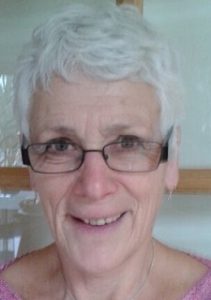
Miranda Pickersgill, retired Teacher of the Deaf, Head of Leeds Deaf and Hearing Impaired Service 1987-2000.
Like the majority of Teachers of the Deaf, I began my career in a deaf school (in 1973). This is where the specialist teaching for which we had been trained through the qualification at the time, took place. These were the days when one could teach deaf children without ever having taught a ‘hearing’ child. Subsequently, this situation changed and a TOD would take up a position in a deaf school, resourced or unit provision having already taught in a mainstream school. From the late ‘70s onwards the changes to the location and delivery of specialist provision presented a challenge to schools and services and within this, to the role of the Teacher of the Deaf. My own work from the mid-1980s and through the ‘90s took place in this context, primarily in setting up and managing the Deaf and Hearing Impaired Service in Leeds. I was extremely fortunate to have had this role at such a time: it has been interesting to reflect on the opportunities and challenges we encountered.
I will present some reflections on what it was like for those of us charged with making the education of deaf children in mainstream schools, work. For this contribution I will focus on some of the implications for Teachers of the Deaf of moving from working in a deaf school to working in a mainstream school, highlighting some of the differences between the two types of placement. I will also describe a few of the implications for my role as the manager of the service. In 1987 the newly established Leeds Deaf and Hearing Impaired Service had a number of TOD of my generation (i.e. who qualified under the old system). In a local authority where deaf school provision (Elmete Hall) was being replaced by newly designated resourced mainstream provision, we were asking TOD not just to change the location of their work but also to reposition and account for themselves professionally in a completely different context.
Some of the challenges the TOD faced can be described as the implications of a change of ownership and stake-holding in deaf education. Prior to this time, TOD had a near-monopoly over jobs in deaf education. Successful working in a resourced mainstream school needed more complex teamwork, sharing responsibility, acknowledging the expertise of subject and other specialists. Some of the kudos of being a Teacher of the Deaf was dented since one had to function as a competent teacher with all that that entailed, alongside one’s mainstream colleagues. The TODs could not rely on their technical or communication skills with deaf children to gain credibility. They had to speak the same language as their colleagues, be knowledgeable of the curriculum and assessment, teaching and learning styles, discipline and school organisation to name just a few aspects of mainstream school life. They had to adjust to the pace, size and energy of the school. There was often also a tension between their loyalties and responsibilities to the school and to the service.
Another challenge to the role of TOD was to adapt to the presence of new professions developed in response to the demands of supporting in mainstream and the recognition of BSL as a language of learning and study. In the late 1980s we established the new role of Educational Interpreter or Communication Support Worker in schools. Here were people, often with signing skills superior to those of the TOD, better able to communicate with the deaf children, without a teaching qualification, yet integral to the success of mainstream provision. The professional role of the TOD was also challenged by the development of the role of the Deaf Instructor, the language and role model for the BSL-using children. Once again, the TOD saw ‘unqualified’ staff (in the sense of professional qualifications) engaging with the children in a unique and essential way, fulfilling a vital role in the team and in the school. This situation required the drawing up of new demarcation lines – who did what, where and when. It was to the credit of the TOD (and schools) at the time that they responded so positively to this new staffing and linguistic ‘mix’. We take these roles for granted nowadays but they did not exist until the late ‘80s. As a manager, I had many issues to deal with in appointing staff to these new roles as well as in supporting existing roles. Space does not permit me to go into more detail here.
In addition to the changes outlined above, significant developments were taking place in the education of special needs children and those from black, Asian and minority ethnic (BAME) backgrounds, all of which reflected major structural and attitudinal changes in society. Leeds as a local authority in the 1980s, was a ‘hot-bed’ of change, led by a Labour council during a period of unpopular Conservative government. Such an authority was receptive to the proposals put forward by the service and indeed we deliberately fitted our policies and plans to those of the council. This ensured that we received the level and kind of resource allocation that we needed. From the early ‘90s we also had to contend with the ‘new’ National Curriculum, SATs and Local Management of Schools (to name but a few of the Conservative government reforms).These were exciting times!
I found myself thrust into a role for which there was little precedent, learning ‘on the hoof’ how to work with city councillors, LEA officers and headteachers whilst also dealing with a fair bit of resistance and anxiety from staff, parents of deaf children and the deaf community. We were asking people to take what could be described as ‘a leap of faith’. I had a clear vision, a sense of where we were going and how we needed to get there but it was not always easy to communicate or manage this process. We were doing ground-breaking work and implementing two major changes at the same time – the move to a sign bilingual policy and resourced mainstream provision. The time was right to take on such important challenges and many factors – political, societal and linguistic – made it possible. These changes accorded with my own values and views. We always promoted the service (and the deaf children) as making a significant contribution to Leeds schools and to Leeds as a multicultural and multilingual city: we could see this happening before our eyes. It wasn’t just about what the schools could do for us but about what we could do for them. We took seriously our responsibility for raising awareness in society of the needs and rights of deaf people whilst ensuring that the deaf children were well-equipped to take their rightful place there.
This contribution is about some of the challenges in managing the transition from one pattern of provision (a deaf school and two partially hearing units) to resourced local authority schools whilst at the same time implementing a sign bilingual policy in the 1980s and 1990s. It is a personal view looking back to that time. The interactive history project will I hope, encourage others to put forward their own perspectives on such a significant and challenging period in the history of deaf education.


